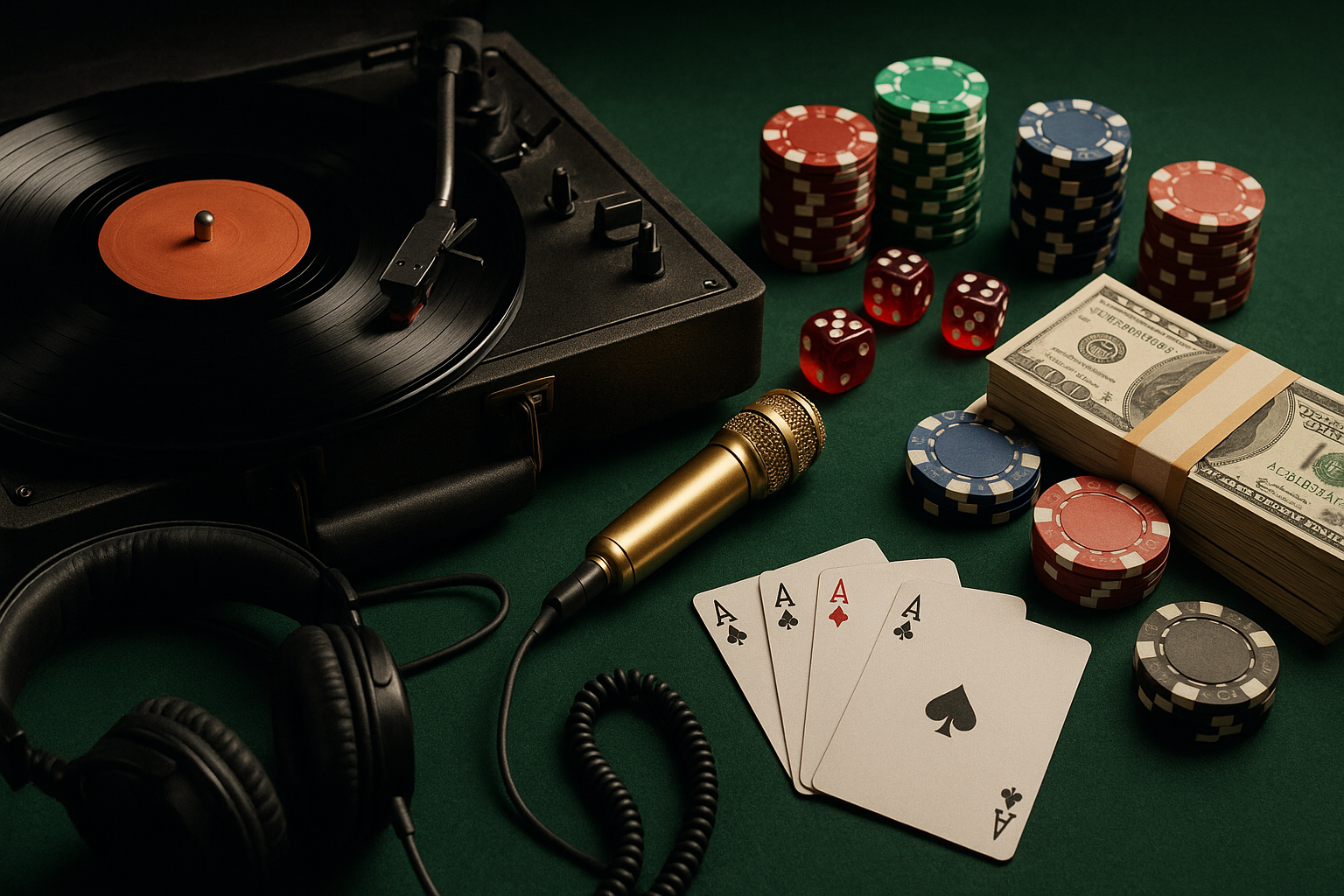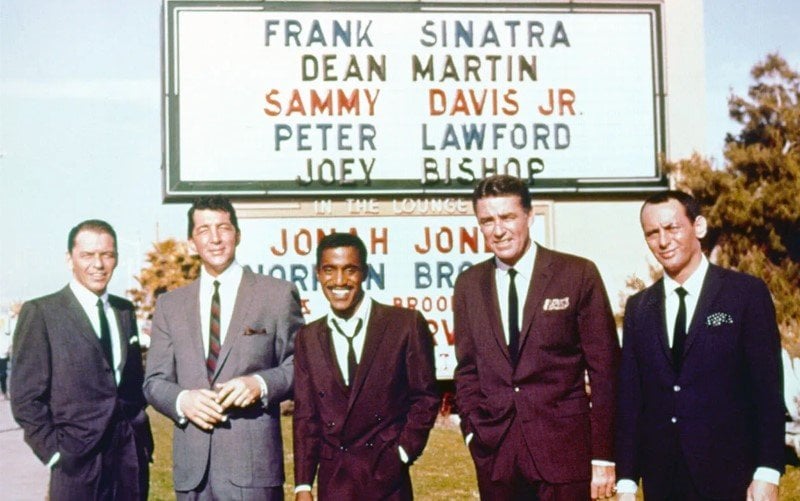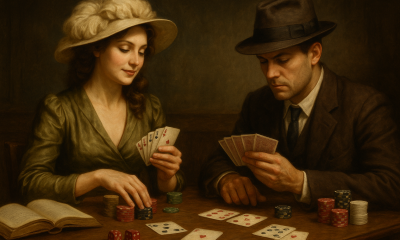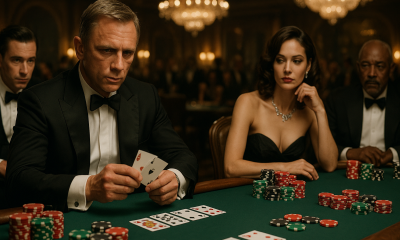Pop Culture
From Sinatra to Rap: Gambling’s Influence on Music

Gambling has an uncanny knack for the dramatic. Whether it is winning lifechanging sums of money in seconds, or producing tales of heavy losses. When it appears in pop culture or there are any media references to gambling, they most commonly deal in extremes. The story of a flat betting specialist who has turned a 5% profit in a month hardly inspires or will have a film made about those exploits. If that same gambler was to suddenly lose $100k in an hour, or form a winning streak and win that much, they are suddenly cast into the spotlight.
The extreme highs and lows of gambling are what draw gamers, and possibly in equal measure, repel others from gambling. It appears in our films, in both nonfiction and fiction novels, and even in our music. In music, the references to gambling are wide and varied. It can be used as a metaphor for loss or rags to riches stories. In some cases, it may be used to describe situations or specific people, often in a negative light. Yet there is also mention of gambling in music that uses it as a means to boast about tales of bravery or bravado.
Extents to Which Gambling Inspires Music
Not all gambling is slot machines and roulette wheels. The traditional definition of gambling is playing a game of chance for money, or another type of stake. It is risking money. But gambling can extend to love, decisions based around work, moving, trying something new, or anything else that could be seen as risky. The point is, a song may reference a game of cards, in relation to how they took a gamble at love. Or, a bluff in which the singer attempted to do something, but it doesn’t really have anything to do with poker hands.
Then, there are songs that go a little bit beyond mentioning playing cards, bluffing or keeping a poker face. For instance, in Frank Sinatra’s Lady Luck, we hear Old Blue Eyes sing about a woman blowing on someone else’s dice. It is referencing something that is well known within gambling circles, but not really common knowledge outside them.
Songs like Elvis Presley’s Viva Las Vegas, or Kendrick Lamar’s Vegas, which talk about various casino games from blackjack to craps, are more soaked in gambling culture.

Earliest Tunes Relating to Gambling
One of the earliest references of gambling in a song was “The Man Who Broke the Bank at Monte Carlo”. Written in 1891 by British comedian Fred Gilbert, it detailed the exploits of Charles H Wells, who won all the money in Monte Carlo playing roulette that year. The song mentions the tables at Monte Carlo, and Dame Fortune smiling on Wells. Though it doesn’t go into much detail about the roulette tables.
Nevertheless, it was an important milestone in music that directly references, or is inpired by, gambling. The House of the Rising Sun, a traditional folk song that was popularized by British rock band The Animals, also references gambling. It looks at the darker side of gambling, with struggles against poverty and addiction. The lyrics may have been different in the original version, and we don’t know when the direct gambling references came in.
Rise of Vegas and Celebrity Gambling
A Lady Be Luck by Frank Sinatra and Elvis Presley’s Viva Las Vegas came at a time when gambling was on the rise in America. Las Vegas was evolving into the American Mecca for gambling, and was glamorized by celebrities in the 1950s. By inviting Sinatra, Ava Gardner, Dean Martin, Sammy Davis Jr, Elvis, and other powerhouse celebs to Las Vegas, gambling became more appealing to the masses. The “Rat Pack” were regulars at Vegas venues.
Of course, there were other mediums casinos used to attract mainstream attention. For instance, Pappy Smith, a Vegas casino owner, introduced a nationwide blackjack marketing campaign.
The references in music, as a result, become more widespread. These didn’t necessarily put a negative spin on gambling. They could also see it as a happy go lucky activity. Or, a venture where only the bold go to spend their money. The Gambler, sung by Kenny Rogers in 1978, painted a more realistic vision of gambling. Revolving around poker, it talks about how every situation can be played for better or worse, and how the experienced gambler knows when to accept losses, choose their battles, and doesn’t get overexcited to count their money straight after a win.

Gambling in Rap and Music Today
Rap is quite commonly associated with themes of crime, poverty, violence, and the pursuit of wealth or fame. It doesn’t exclusively revolve around these topics. But historically, rap is an anti-establishment folk music emerging from West African chanting traditions. Gambling naturally gelled into the context of these themes.
Artists like Drake and Future make mention of placing six figure bets, or going hard at the casino tables. Going a little further back, Ice Cube and the Notorious BIG also made references about gambling, relating to good fortune and success in the industry.
From the Rolling Stones’ Tumbling Dice, to Easy Money by Billy Joel. Or, Pokerface by Ghostface Killah to Who Gon Stop Me by Jay-Z and Kanye West. The music industry is rife with references to gambling, and they are extremely varied.
On the one hand, you can get songs encouraging the listener to gamble. Using the gambles as a means of showing off personal wealth or as something you need to do to get rich and quick. Other songs will lament the downsides of gambling, the losses, addictive traits and other damaging effects gambling can have on people.
Does Music Glorify or Villainize Gambling?
Of course, gambling does have all of these things. You have people winning a big payout, bragging about it and exaggerating all the details. Every time they tell the story, the stakes are higher and the player’s skill level or confidence in their abilities is stronger. On the other hand, we can get the image of gambling as something that can ruin your life. Or, as the past time of people who have lost it all, and something you don’t want to get pulled into.
They do tend to portray gambling as something that can have extreme consequences. Thus, they distort the realities of gambling. They will not detail the hours gamers spend battling with variance, or a gamer accepting small losses and saving their bankroll. Neither will they mention people who increase their bankroll in small increments, and take regular breaks to reset between sessions. But neither do books, films, or any kind of artistic portrayals of gambling. You couldn’t sell a blockbuster Hollywood film about gambling if the protagonist is playing $1 stakes at a blackjack table. There needs to be something dramatic to capture the audience, and gambling is thus used as a glorification of risk or a cautionary tale.

Understanding the Reality from the Myths
When playing online casino games for real money, you need to have a plan in place. It involves making premeditated decisions about how much you want to spend. And also think about how long you want to play, and set a point at which you will stop. Don’t just think about winning limits. No, also consider the point at which you will accept your losses and stop playing.
Which games you pick, how you play, and the amount you stake per round is entirely on you. Creating a bankroll helps you set boundaries regarding how much you spend. You can do this on a weekly or even monthly basis. This creates a balance that should last the given time frame. From there, you can allocate portions of your budget to each gaming session. Then, you break these further into stakes for each round.
By taking regular breaks and learning when to quit, you can help avoid falling into the psychological traps of gambling. Keep a realistic outlook and not getting overexcited with wins will also prove useful in keeping a level head. Everyone wants to hit the jackpot, but the odds are stacked high against players. So be more pragmatic, and don’t swing for the homers every time you go up to hit.











